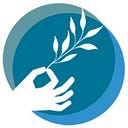
Member-only story
The untapped potential of culture for peace
After the fall of the Berlin Wall, of which we celebrate its 30th anniversary this year, it seemed that history was moving inexorably in the direction of democracy and free markets and that we could leave behind the dangers of great conflicts forever.
But today, the world is more complicated, more confrontational and conflictive than we ever anticipated. The technological revolution is reshaping the way we live, work, and fight. The global economic and political power is shifting from West to East, with China replacing America as the driver of global change. Populism and authoritarianism are on the rise; public support for democratic ideals remain strong, but are at risk in a number of countries, as the prospect of cooperation framed by internationalism is faltering.
“Today, the world is more complicated, more confrontational and conflictive than we ever anticipated.”
Advancing the cause of global peace and avoiding conflict in a changing world requires a change of paradigm. It requires us to explore new approaches, and include Culture in peacekeeping and reconciliation.
